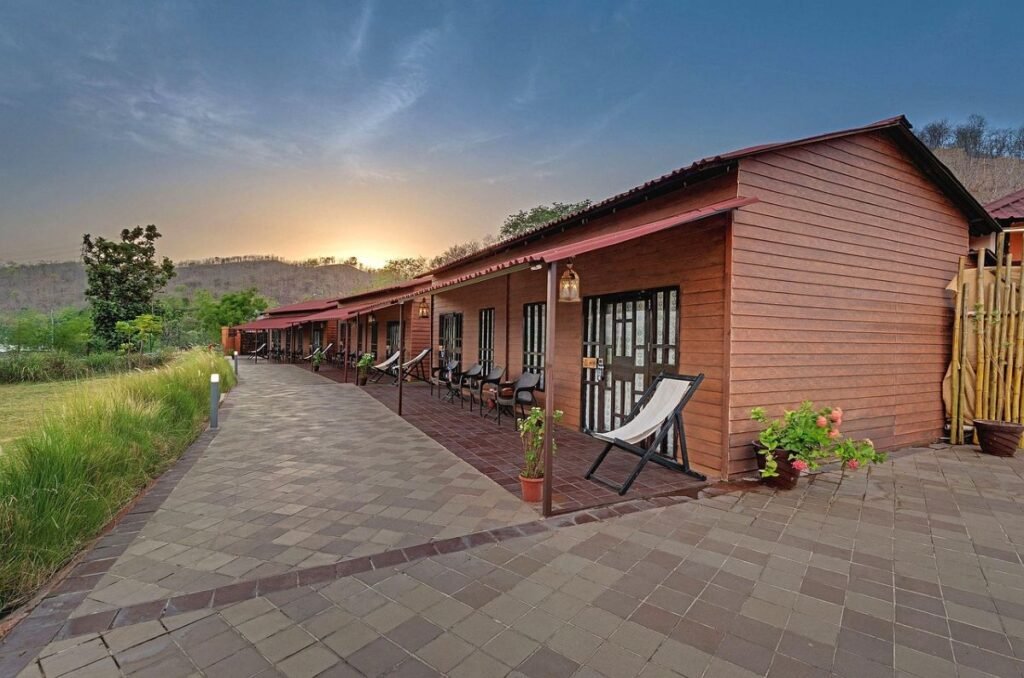Physical Address
304 North Cardinal St.
Dorchester Center, MA 02124


Green and Budget-Friendly Trip
Discover eco-friendly travel tips that save money while protecting the planet. Your ultimate sustainable travel guide for budget-conscious beginners.
Do you dream of exploring the world while keeping your environmental footprint small and your wallet happy? Sustainable travel is more than a trend; it’s a necessity for preserving our planet’s incredible destinations for future generations. The good news is that eco-friendly travel often means budget-friendly travel, striking the perfect balance between your conscience and your bank account.
Imagine walking through a bustling local market where the aroma of fresh spices mingles with the sounds of friendly vendors sharing stories in their native tongue. Picture yourself staying in a family-run guesthouse where solar panels power your room and the breakfast features ingredients grown in their backyard garden. This is sustainable travel at its finest – authentic, affordable, and absolutely magical.
Sustainable travel is more than just choosing eco-friendly hotels. It’s about making conscious decisions that minimize your environmental impact and maximize your positive contributions to local communities. By embracing sustainable tourism, you join a global movement that preserves natural wonders and cultural heritage.
The beauty of sustainable travel lies in its three pillars:

Environmental protection- through reduced carbon emissions and waste
Many travelers find that sustainable practices enhance their experiences. For example, when you choose local transportation, you meet fascinating people and discover hidden gems that tour buses never reach. Supporting family-owned restaurants allows you to taste authentic flavors that chain establishments simply can’t replicate.
Budget-conscious travelers often find that eco-friendly choices cost less. Staying in locally owned accommodations, eating at neighborhood restaurants, and using public transportation can significantly reduce travel expenses while fostering more meaningful connections.
Your sustainable travel journey begins with selecting a destination. Some countries and regions have embraced ecotourism more enthusiastically than others, which makes achieving your green travel goals easier.
Consider these factors when planning:
Thoughtful preparation is key to successful sustainable travel. Begin by researching your destination’s environmental issues and current conservation efforts. Many destinations offer volunteer opportunities that allow you to contribute to the local community while exploring.
Top preparation strategies:

Identify eco-certified accommodations and tour operators
Contrary to popular belief, sustainable travel can be quite economical. By focusing on local experiences and avoiding tourist traps, you’ll often have more authentic adventures while spending less.
Money-saving sustainable practices:

Participate in free walking tours and community events
Public transportation is the ideal solution that combines sustainability and affordability. Buses, trains, and subways emit far less carbon per passenger than private vehicles and cost a fraction of the price of taxis or rental cars.
Comprehensive public transit systems in cities like Amsterdam, Copenhagen, and Barcelona make car rentals unnecessary. The rhythmic clatter of train wheels and the gentle sway of carriages provide a meditative travel experience that flight connections simply cannot match.
Long-distance trains and buses provide incredible opportunities for sustainable travel. The Trans-Siberian Railway, European rail networks, and South American bus systems connect amazing destinations while keeping your carbon footprint small.
Overland travel advantages:

Comfortable overnight options that save on accommodation costs.
There’s nothing like the intimate connection you get from exploring a destination on foot or by bicycle. Fortunately, many cities now offer excellent bike-sharing programs and pedestrian-friendly infrastructure.

Walking and Cycling Adventures
Cycling through Amsterdam’s canal districts or walking ancient pilgrimage routes in Spain offers experiences that vehicles simply cannot provide. Moments like the gentle morning breeze carrying the sounds of awakening cities and the discovery of hidden courtyards and local cafés define authentic travel.
The landscape of accommodations has transformed dramatically, offering eco-conscious travelers numerous affordable options. Hostels, guesthouses, and family-run establishments often prioritize sustainability and provide a genuine cultural experience.
Eco-friendly accommodation types:

Eco-lodges- with renewable energy and waste reduction programs
To identify truly sustainable accommodations, you must look beyond marketing claims. Genuine eco-friendly properties implement comprehensive environmental practices and support local communities.
Key sustainability indicators:

Waste reduction and recycling initiatives
You don’t have to pay luxury prices for sustainable accommodation. Many affordable options excel in environmental responsibility while offering clean, comfortable rooms and genuine hospitality.
Hostels are increasingly embracing sustainability by installing energy-efficient lighting and water-saving fixtures and implementing waste reduction programs. Family guesthouses often have a minimal environmental impact due to their small size and local sourcing practices.
Food is one of the greatest pleasures and sustainability opportunities of travel. Eating local cuisine requires minimal transportation, supports regional farmers, and preserves culinary traditions.
Street food markets buzz with energy as vendors prepare traditional dishes using generations-old recipes. The sizzle of fresh ingredients in hot pans, colorful displays of seasonal produce, and animated conversations between sellers and buyers define the authentic dining experience of travel.
Supporting locally owned restaurants and markets has a positive economic impact and reduces your meal’s carbon footprint. Many destinations offer cooking classes where you can learn traditional techniques and support local families.
Sustainable dining strategies:

farmers markets and local food festivals
Food waste is a significant environmental challenge that conscious travelers can help address. Simple practices like ordering appropriate portion sizes and carrying reusable containers can make a big difference.
Many accommodations provide refrigerators where you can store leftovers or fresh market purchases. Some destinations have cultural norms surrounding meal sharing or taking food home that align perfectly with waste reduction goals.
Packing light serves multiple sustainability purposes and makes travel more enjoyable. Lighter luggage requires less fuel to transport and allows you to explore destinations on foot or by bicycle with greater mobility.
The key to successful minimalist packing is choosing versatile items that serve multiple purposes. For example, a lightweight scarf can serve as a blanket, towel, or privacy screen. Quality walking shoes can also be worn for dining out or cultural visits.
Essential sustainable packing tips:

refillable water bottles and containers.
Investing in quality, sustainable travel gear reduces long-term environmental impact and often saves money in the long run. Durable backpacks, solar chargers, and reusable containers eliminate the need for disposable items and can withstand many adventures.
Modern eco-friendly travel products offer impressive functionality without sacrificing performance. From bamboo toothbrushes to organic cotton clothing to recycled plastic luggage, there are sustainable options for every travel need.

bamboo toothbrushes
Of all the environmental impacts of travel, single-use plastics are the easiest to avoid. With a little preparation, you can eliminate the need for disposable water bottles, shopping bags, and food containers throughout your journey.
With practice, carrying reusable alternatives becomes second nature. The satisfaction you feel when you decline plastic bags and use your own cloth shopping bag creates small moments of environmental pride that enhance your travel experience.
Travelers can learn from and support the unique ways in which different cultures approach environmental stewardship. Many indigenous communities have developed sustainable practices over the course of centuries, which modern visitors can respectfully observe and appreciate.
In Bhutan, the concept of Gross National Happiness emphasizes environmental conservation and economic development. Costa Rica’s “Pura Vida” philosophy embraces living in harmony with nature. Approaching these cultural values with genuine respect and curiosity enhances sustainable travel experiences.
Local communities often possess environmental knowledge that academic research has only recently begun to understand. Traditional farming methods, water conservation techniques, and waste management systems, developed over generations, provide valuable insights into sustainable living.
Ways to engage with local environmental wisdom:

medicinal plants and natural remedies
Sustainable travel means leaving a destination in better condition than when you arrived. You don’t need to make grand gestures; small actions like supporting local businesses, respecting cultural sites, and following established guidelines can have a positive impact.
Volunteer opportunities allow for deeper community engagement and the chance to contribute specific skills or labor. Teaching English, assisting with conservation projects, and supporting community gardens are meaningful ways to give back while traveling.
Smartphone applications can significantly improve the planning and execution of sustainable travel. Technology supports environmentally conscious decisions, from finding eco-certified accommodations to locating public transportation routes.
Essential sustainable travel apps:
Digital ticketing, mobile boarding passes, and electronic guidebooks eliminate paper waste and often provide more convenient access to information. Cloud storage ensures that important documents remain accessible, even if devices are lost or damaged.
Using offline maps and translation apps can reduce roaming charges and decrease reliance on printed materials. Now, many destinations offer QR code systems that allow tourists to access information without physical brochures.
There are several applications that help travelers monitor and offset their environmental impact during their journeys. Knowing your carbon footprint allows you to make informed decisions about transportation, accommodations, and activities.
Some platforms allow you to purchase verified carbon offsets, which fund reforestation or renewable energy projects. Although offsets do not eliminate environmental impact, they provide a way to support positive environmental initiatives.
European destinations are leading the way in global sustainable tourism initiatives thanks to their comprehensive public transportation systems, adoption of renewable energy, and strong environmental regulations.
Sustainable European highlights:
| Destination | Key Features | Best Time to Visit |
|---|---|---|
| Copenhagen, Denmark | Extensive cycling infrastructure, green rooftops | May-September |
| Ljubljana, Slovenia | Car-free city center, organic local food | April-October |
| Azores, Portugal | Geothermal energy, eco-tourism focus | March-November |
| Amsterdam, Netherlands | Canal transport, circular economy initiatives | April-September |
An increasing number of Asian destinations are embracing sustainable tourism as a development strategy that preserves natural and cultural heritage while creating economic opportunities.
Bhutan’s carbon-negative status and mandatory sustainable tourism policies set an example for responsible travel. Costa Rica’s network of eco-lodges shows how sustainable accommodations can improve luxury travel experiences rather than diminish them.
Many developing destinations recognize the potential of sustainable tourism for economic development without environmental degradation. These locations often provide exceptional value for eco-conscious travelers while supporting vital conservation efforts.
Countries such as Rwanda, Madagascar, and Ecuador have developed innovative ecotourism programs that fund conservation efforts and offer authentic cultural experiences. These destinations offer sustainable travelers incredible wildlife encounters and pristine natural environments.
Every destination has unique environmental challenges that conscious travelers should understand and respect. Desert regions face water scarcity, coastal areas face plastic pollution, and tropical zones face deforestation. All of these issues require different sustainable travel approaches.
Researching local environmental issues allows you to make informed decisions about your activities, purchases, and behavior. Supporting businesses that actively address these challenges increases your positive impact beyond merely minimizing negative effects.
Climate change disrupts traditional weather patterns, making seasonal planning crucial for sustainable travel. Visiting during the appropriate season reduces the need for heating or cooling and helps avoid weather-related travel disruptions.
Seasonal sustainable travel benefits:
Many sustainable destinations have streamlined their visa processes to promote responsible tourism. Some countries offer special visas for eco-volunteers and longer stays, which reduces the need for frequent transportation.
Electronic visa systems reduce paper waste and streamline application processes. Some destinations now accept digital vaccination certificates and health documentation, eliminating the need for printing.
Specialized booking platforms now focus exclusively on sustainable accommodations and tour operators. They verify environmental claims and community impact, making it easier to find genuinely responsible travel options.
Traditional booking sites are increasingly offering sustainability filters and eco-certification badges. However, booking directly with local operators often provides better prices and ensures that maximum economic benefit reaches destination communities.
Modern communication technology enables deeper cultural exchanges and sustainable travel. Translation apps facilitate meaningful conversations with locals, and cultural etiquette guides help travelers avoid unintentionally offending others.
Video calling capabilities allow you to share your experiences with family and friends, eliminating the need for physical postcards or printed photos. When used thoughtfully, social media platforms can promote responsible travel practices and highlight sustainable businesses.
Is sustainable travel more expensive than traditional travel? Often, it costs less because it emphasizes local experiences, public transportation, and community-based accommodations rather than expensive international chains and private transfers.
How can I ensure that my accommodations are genuinely sustainable? Look for third-party certifications such as Green Key, LEED, or local eco-tourism certifications. Also, research the property’s specific environmental practices, community involvement, and local hiring policies.
Which sustainable travel practice is most important for beginners? Start with transportation choices, as they usually account for the greatest portion of a trip’s environmental impact. Choose destinations that are accessible by land, and use public transportation extensively once you arrive.
Is it possible to travel sustainably with children or in groups? Sustainable travel with family or in groups is often easier and more economical than solo travel. Shared accommodations, group discounts on public transportation, and family-friendly ecotourism activities make green travel accessible for all ages.
How can I find sustainable tour operators and activities? Look for operators with environmental certifications, community partnerships, and transparent sustainability practices. Local operators often provide more sustainable options and more authentic cultural experiences than international companies.
What should I do if sustainable options aren’t available? Focus on minimizing your impact by making the best choices you can. For example, choose the most fuel-efficient transportation option available, stay at locally owned accommodations, eat at family-owned restaurants, and respect local environmental guidelines.
Sustainable travel transforms ordinary trips into extraordinary adventures that benefit travelers and destinations alike. Every eco-conscious decision you make, such as choosing overland transportation or supporting local restaurants, helps preserve the incredible diversity that makes travel so enriching.
The world needs travelers who care about environmental impact and cultural preservation. Your sustainable travel choices generate demand for responsible tourism practices and support communities that depend on tourism for their economic survival.
Start planning your first sustainable adventure today! Research destinations that align with your environmental values. Book accommodations that support local communities. Prepare for travel experiences that will change the way you see the world.
Ready to plan your sustainable adventure? Visit travelgoeasy.net for eco-friendly booking options, sustainable accommodation recommendations, and green transportation solutions that make responsible travel simple and affordable.
Which sustainable travel destination calls to your heart? Share your eco-travel dreams and experiences in the comments below. Your insights may inspire others to choose more responsible adventures.
This article is exclusive content for travelgoeasy.net and is protected by copyright. All sustainable travel tips and destination recommendations have been researched and verified for accuracy and environmental impact.
Ready to plan your sustainable adventure?
Discover how our comprehensive solutions empower your journey.
Popular Destination
Discover Indonesia‘s hidden gems and cultural treasures with our comprehensive travel guide. Find budget-friendly tips, authentic experiences, and undiscovered paradises perfect for family vacations and solo adventures in 2025.
Travel Plans & Experiences
Discover the best wildlife safari destinations for families in 2025! Find budget-friendly options, insider tips, and unforgettable experiences for your next adventure. Book cheap flights and budget-friendly hotels with Travel Go Easy for an incredible family trip.




